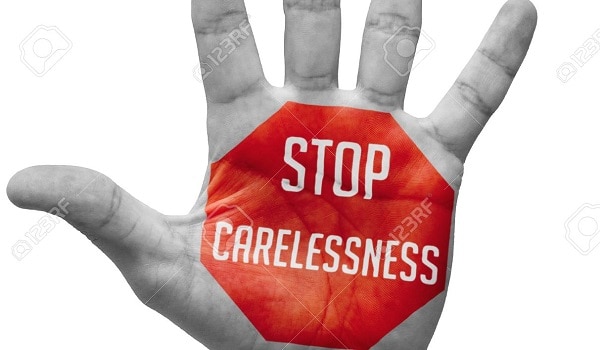5 Ways You’ve Being a Careless Or Bad Friend Without Knowing It

Would you want to be your friend? At one point or another—if we were really being honest—we’d all probably say “no.”
That’s because friendships, like any relationship, can get a bit too comfortable over time. And while a good friend will know when you’re just having a bad day, it’s easy to get into bad habits without even realizing it. Since your friends aren’t always the first ones to call you out on your crap, we’re here to do it.
1. Being Chronically Late
We know: Your schedule is packed. And who doesn’t occasionally hit the snooze button one too many times? But if your friends have stopped counting on you to be on time, you’re being a bad friend. “When you show up late or don’t show up at all, you’re conveying that your friends’ time is less valuable than yours,” says Levine. “It devalues the other person.” Think long and hard about how you may be making your friends feel and if you need to re-examine your schedule and priorities. “Or, if you’re only late with one individual, consider whether your tardiness might reflect your ambivalence or lack of interest in the friendship,” she says.
2. Being Too Needy
Friends help each other out. But are you asking for more favors (Can you pick up my kid from school? Give me a ride? Cover my dinner just this one time?) than you’re handing out? Your pal probably feels it, and it can wear thin. Friendships need to be reciprocal—not every second, but in the long run, says Levine. “Make sure that you are as attentive to your friend as you expect her to be to you.” Consider scaling back on the requests for favors and helping her out more—even when she doesn’t ask for it. The most thoughtful gestures are the ones you do on your own.
3. Expecting Your Friendship to Stay the Same
People change, and so should friendships. If you expect—or even pressure—your best friend to be the same person she was in college, you’re going to be frustrated—and possibly friendless. “Just because your friend used to join you on bar crawls, it doesn’t mean that she can do the same when she has a newborn,” says Levine. You’ve got to accept her as she is now rather than assuming she’s going to be the person she was 10 years ago, says Levine. After all, you’ll want her to adapt to changes in your life, whether it’s a new job, city, boyfriend, or baby.
4. Talking Too Much
Are you having a conversation or monologuing? “If you’re the one doing all the talking, you may not even notice that your friend is rolling her eyes or looking at her watch,” says Levine. Plus, often, when women are just trying to show solidarity (think: “The same thing happened to me! This one time…”), they can inadvertently cut off friends and make them feel like they’re being one-upped. Instead, take a breath and ask her about what’s going on with her. “Make sure that you show interest in your friend by asking questions and being an active listener,” says Levine. And if you really have that much to vent about, Levine recommends seeking the helpful ear of a counselor or therapist.
5. Never Planning
Do you ask out your friends or wait for them to call you? Do you count on them to figure out what to do every time you’re together? “If you never initiate, friends may interpret it as a lack of interest in the friendship and stop asking you to do things,” says Levine. So pick a day, and pitch some ideas to your friends. A good rule of thumb: For every invite, a friend extends your way, try to extend one back.
All gifs courtesy of giphy.com






